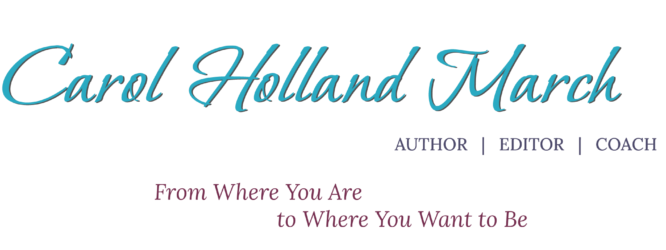 Do you believe in miracles?
Do you believe in miracles?
Sure, you might say. I’ve seen miracles. And I expect to see them again
Or, There are no such things. Science has explanations for everything.
Actually, both perspectives are right. Miracles are prayers answered, hope fulfilled, stories of the seemingly impossible, inspirations that change lives, the melting of hardened hearts, personal transformation. But how do these things happen?
Contrary to what our senses tell us, science informs us that everything is energy. The observer affects the observed. Our thoughts influence what we perceive, how we feel, and whether we are joyful or depressed.
Mahatma Gandhi said, “A man is a product of his thoughts. What he thinks, he becomes.”
Traditionally, a miracle is an event we don’t expect and didn’t foresee. It comes out of the blue, full of meaning, an object of wonder so marvelous it points to a reality beyond our reach. In a religious context, we can see this as God, the ground of being, or as manifestations of supernatural powers.
What is miraculous in one culture may be ordinary in another.
In the west, people interpret spontaneous recovery from serious illness as a miracle, and persons with unusual healing powers as miraculous beings. In some earth-based cultures, thunder and lightning are considered messengers of the divine, while recovery from serious afflictions is the result of energetic interventions by a shaman or spiritual healer. And perfectly ordinary
Saint Augustine said, “Miracles are not contrary to nature, only to what we know about nature.”
Another view is that the miraculous shows itself in the everyday world—in nature, in the love between people, in a child’s smile.
The miraculous may simply be something we do not yet understand. When we use the power of intention, affirmation, gratitude, or prayer, we are harnessing energy in the living field that connects us all. We do it to change our lives, which means we acknowledge our connectedness in the field of life. Nothing is really separate. If I love you, I love myself. If I hurt you, I hurt myself.
When we understand this, we notice that our thoughts and words change our perception of reality. If we persevere with those new thoughts, our actual reality changes too.
If I pray for healing for my friend, and my friend recovers from his illness, is that a miracle? Or the effect of intention on the web of consciousness that binds us together
You decide, according to what you believe.
For 101 stories of everyday miracles, check out the new anthology, Believe in Miracles, by Chicken Soup for the Soul, available now for pre-order. My essay, Please Pass the Holy Water, is one of the stories. I hope you enjoy it.


 Yes, we love the holidays. Family, food, out of town guests, parties, long lunches, shopping, and evergreen trees in the living room. Of course we do. But it can be overwhelming. Too much family, food, guests, parties, lunches, and shopping. What happened to the tree? Is it still tied to the roof of the car?
Yes, we love the holidays. Family, food, out of town guests, parties, long lunches, shopping, and evergreen trees in the living room. Of course we do. But it can be overwhelming. Too much family, food, guests, parties, lunches, and shopping. What happened to the tree? Is it still tied to the roof of the car?
 Meditation is an easy, simple way to calm down, reduce mental chatter, and take more pleasure in life. For many years, my meditation practice has formed the foundation of my creative work. It helps me listen better, understand what my body needs, and stay present for the inevitable setbacks of life.
Meditation is an easy, simple way to calm down, reduce mental chatter, and take more pleasure in life. For many years, my meditation practice has formed the foundation of my creative work. It helps me listen better, understand what my body needs, and stay present for the inevitable setbacks of life. Vein of Gold, metaphorically the hidden treasure of our lives, is the title of a Julia Cameron book on journaling our way to creativity and spirituality. Her books are for people seeking to uncover their art, who may be stuck, or lack confidence in their ability to bring forth their ideas.
Vein of Gold, metaphorically the hidden treasure of our lives, is the title of a Julia Cameron book on journaling our way to creativity and spirituality. Her books are for people seeking to uncover their art, who may be stuck, or lack confidence in their ability to bring forth their ideas.


 How we feel about ourselves influences our immune system. Candace Pert (Molecules of Emotion) and many researchers since have uncovered physiological mechanisms in our bodies that influence how we feel and how effectively we can fight off and recover from illness.
How we feel about ourselves influences our immune system. Candace Pert (Molecules of Emotion) and many researchers since have uncovered physiological mechanisms in our bodies that influence how we feel and how effectively we can fight off and recover from illness.





 What happens when we don’t express our creative energy? When something inside blocks us from writing, painting, designing, making music, dancing for joy?
What happens when we don’t express our creative energy? When something inside blocks us from writing, painting, designing, making music, dancing for joy?
 An exercise I use with coaching clients moving through transition is to write their own epitaph. Some are put off by this exercise, but others embrace it. Some find it validates their choices, while others realize their current life does not reflect their true aspirations.
An exercise I use with coaching clients moving through transition is to write their own epitaph. Some are put off by this exercise, but others embrace it. Some find it validates their choices, while others realize their current life does not reflect their true aspirations.